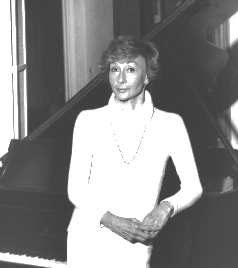Page 39
[Begin Tape 1, Side A]
Biagi: Last time we were talking, we ended up in about 1948 or '49. We were with Ed Murrow and we were in New York. So that's, believe it or not, where we were. So I'd like to start there and talk about your experience there, what it was like working with him.
Taylor: The way I got involved with Murrow, did I talk about the show I was doing called "Feature Story?"
Biagi: I think we had you working in radio.
Taylor: I was hired out of Columbia in April of '44 and I started working for Bob Trout, writing for Bob Trout, who had a daily program. Then I went to the conventions and that was a big experience. Then the year afterwards, in '45, Bob was assigned to do a program called "Feature Story," which involved all the other correspondents inasmuch as the correspondents had a lot of stories that they didn't have time to tell and they were only doing the top of news. So they would come forth at times and they couldn't get a story on the air that they thought was worthy. So there was so much of this material and we had a lot of these wonderful correspondents overseas, so it was decided that they would take the ideas from the correspondents, try to match up the ideas, or, say one correspondent had an idea about something political or even something of lifestyle, whatever, where he was, we'd try to then assign another correspondent or two to do something that would be a joint kind of thing so they would all have the same angle on a story. We would hop around to the different locations. It would be coordinated out of New York and whoever read it in New York, who was going to be Bob Trout, would do companion pieces as well, from New York, and narrate it as well.
So Bob started doing that and I helped him. I wrote and reported and so on. But he hated it. He didn't want to do it. This was not what he was about, for one thing. He just introduced those correspondents on his program, but it was kind of like he was on their program. That's not what he said and that's not the way anybody concluded it, but only now am I thinking that is the way it really was. [Laughter.] Whatever occurred, Bob decided he didn't want to do that program.
So we all still thought it was a great program, a great idea, so they said, "Okay, Ruth, you're producing the program. You just go ahead and you write the stories and you do the reporting and you do all the stuff, except, of course, we can't use your voice because you're a woman with a squeaky voice." Any woman had a squeaky voice, and I'm sure mine was worse.
Anyway, they assigned an announcer who had a very good voice and who read the news on some of the news programs.

